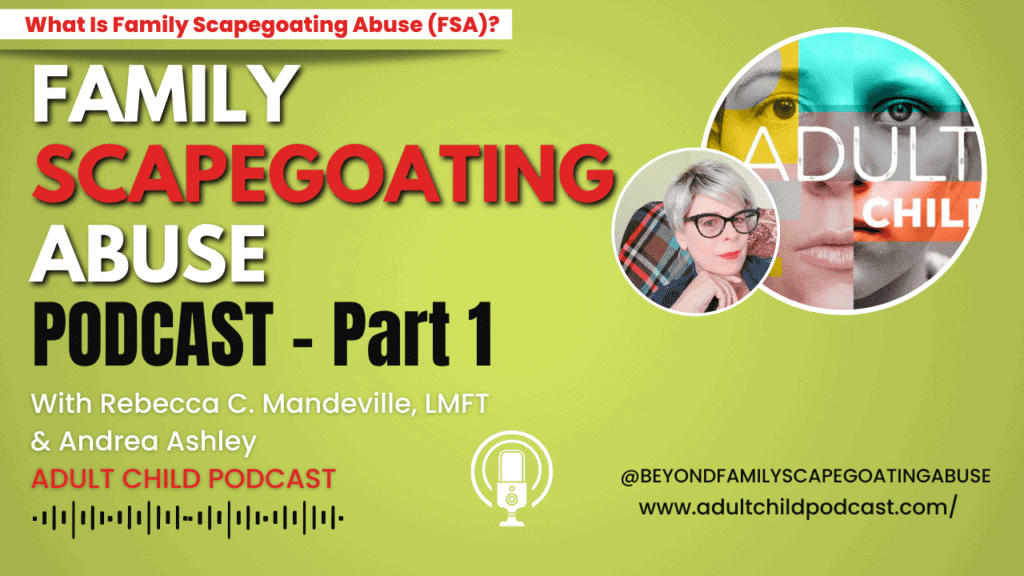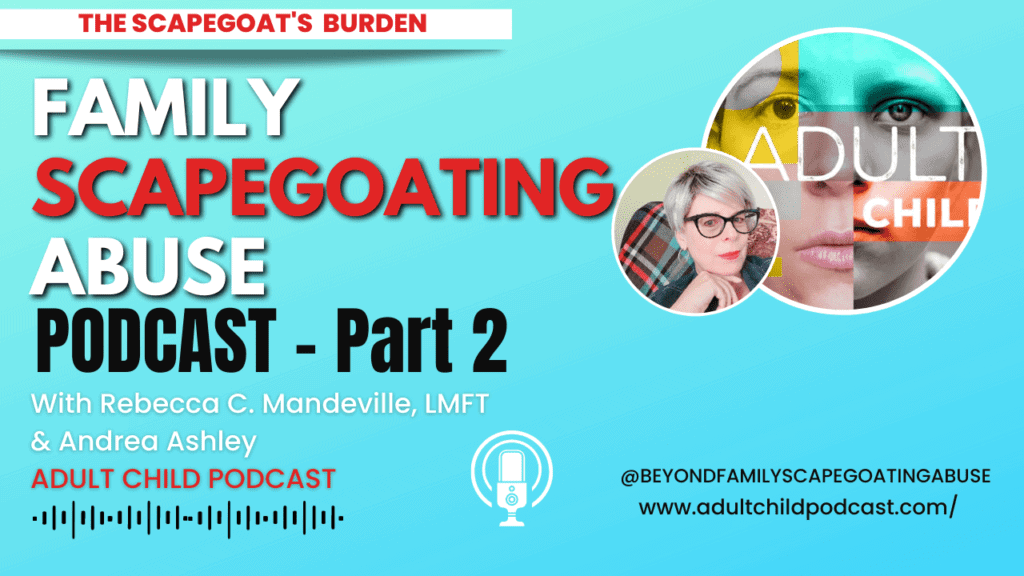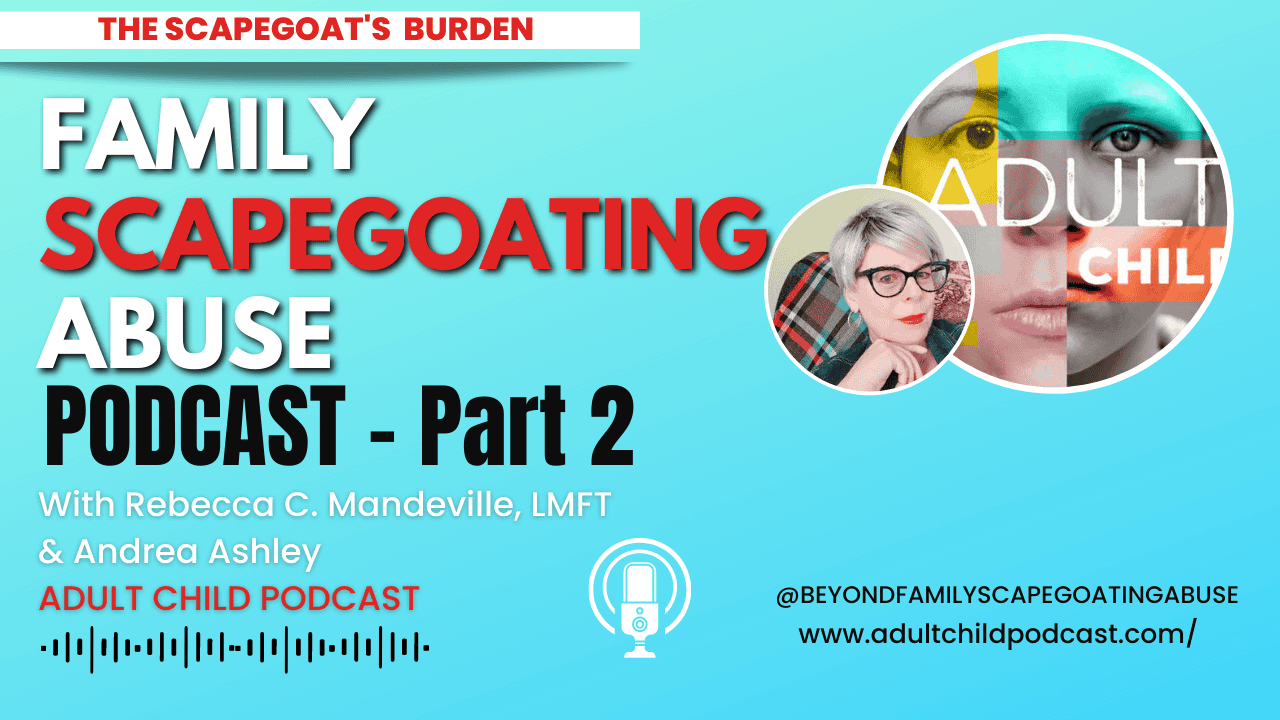A Warm Welcome to all of our new subscribers!
Andrea Ashley and I have been getting some terrific feedback on the podcast we did recently on her show, Adult Child Podcast. I know some of you have been waiting for it to be available on YouTube. Parts One and Two of the interview are now posted there, with closed captions and chapter segments to make searching through the content easier ( the chapters are available in each video’s description).
It’s been exciting to see people’s interest in the Family Systems view of scapegoating in dysfunctional families increasing, especially in regard to the Family Projective Identification Process. This process (which is an unconscious defense mechanism) was first identified within the Psychoanalytical field over half a century ago. General and Family systems theorists and researchers later validated this process as also being active within social groups, including in dysfunctional (and often highly traumatized) family systems.
It is the Family Projective Identification Process that typically fuels and drives the scapegoating of a family member in dysfunctional family systems. It is similar to a shared group psychosis, in that members of the family are believing things about the scapegoated child or adult child that are not true. In such families, narcissism – and narcissistic abuse of a scapegoated child / adult child – may or may not be a factor.
Understanding the difference between family scapegoating abuse (FSA) and narcissistic abuse can be critical to an FSA adult survivor’s long-term recovery, as well as decision-making regarding level of contact with individual family members (or their family-of-origin as a whole). Read my articles about FSA and Narcissistic Family Systems and the Family Projective Identification Process to learn more.
Still in contact with family and seeing them for the holidays? Read my article 10 Strategies for Navigating Holiday Family Gatherings.
Check out the Community page of my YouTube channel for additional links of interest and to participate in Polls and Q & A’s.
Rebecca C. Mandeville, LMFT, CCTP
Parts One and Two of my interview with Andrea Ashley of the Adult Child Podcast

PART ONE: The Roots of the Term ‘Family Scapegoating Abuse’ (FSA)
In Part One of this four-part Podcast, Rebecca discusses what drew her to specialize in Family Systems and what led to her initiating her research on what she eventually named, ‘Family Scapegoating Abuse’ (FSA). FSA’s relationship with intergenerational trauma and complex trauma (C-PTSD) is also addressed, as well as blatant (overt) versus subtle (covert) forms of FSA.

PART TWO: The Scapegoat’s Burden
In dysfunctional family systems that are driven by the Family Projective Identification Process, the Empath or Highly Sensitive (HSP) child / adult child may find themselves in the ‘Scapegoat’ role due to their becoming the repository for the family’s ‘disowned parts’ (e.g., individual and systemic trauma, anxiety, pain) – a dynamic that can happen in ANY social group where unconscious dynamics and processes are at play.

thanks for info